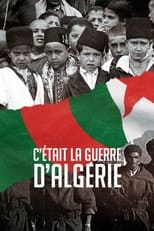Bachir Hadj Ali
¿Quién es Bachir Hadj Ali?
Remaining in hiding throughout the war of national liberation, Bachir Hadj Ali negotiated in 1956 with Sadek Hadjerès the individual integration into the ALN of the “Liberation Fighters”, a military organization of Algerian communists, created in 1954, including he is responsible. He then took over the management of the PCA. After Independence, President Ben Bella banned the PCA in November 1962. Bachir Hadj Ali is, alongside Mouloud Mammeri, Jean Sénac, Mourad Bourboune, one of the founders of the Union of Algerian Writers, from which he resigned in 1963.
After Houari Boumediène took power on June 19, 1965, he created the “Organization of Popular Resistance” (ORP) with the left of the FLN, Hocine Zahouane and Mohammed Harbi. In September he was arrested and tortured in the premises of Military Security in Algiers. Transferred in November to Lambèse prison, he wrote L'Arbitraire on sheets of toilet paper which he managed to transmit, hidden in hollowed-out cigarettes, to his wife Lucette Larribère during her visits. The text which describes the torture he suffered, and from which he will have serious after-effects, was published in 1966 by Éditions de Minuit. Under censorship and therefore not including any political remarks, his letters from prison (Letters to Lucette, op. cit.) reflect his literary and musical sensitivity by showing even more the internalization of the communist formation which was attached to the progressive ideal of an Algerian Algeria. The readings and cultural references are those shared by communist intellectuals, from Nâzım Hikmet to Pablo Neruda, but even more so under the French horizon: Paul Éluard and, first of all, Louis Aragon, as well as the songs of Jean Ferrat. Malouf's passion is the North African touch, but which is projected into Algerian Andalusian music. Patriotism and socialism are a sentiment in the exaltation of the permanence of the people.
Released in 1968, Bachir Hadj Ali was placed under house arrest in Saïda then Ain Sefra. Banned from staying in major Algerian cities, he did not return to Algiers until 1974.
Officially released in 1974, Bachir Hadj Ali reduced his activities to the field of poetry and musical knowledge: he gave conferences, participated in conferences and seminars, supported the theatrical experience of Abdelkader Alloula. Writing poems and essays, Bachir Hadj Ali, founder in 1966 of the Socialist Avant-Garde Party (PAGS). The suffering endured and the after-effects of the abuse, the increasing physical deterioration, brought him, after 1980, “into an increasingly opaque night”. He died in Algiers on May 9, 1991.
Trabajos destacados
Géneros más habituales en las películas de Bachir Hadj Ali
Géneros más habituales en las series de Bachir Hadj Ali
Compañeros de trabajo recientes de Bachir Hadj Ali
Las imágenes y retratos de actores y actrices mostrados en este sitio web son obtenidos de la base de datos pública de The Movie Database (TMDb), utilizada bajo los términos y condiciones de dicha plataforma. En caso de que alguna imagen o fotografía sea incorrecta, ofensiva, o pueda infringir derechos de imagen o copyright, puede ser editada o eliminada directamente en TMDb. Esto provocará su eliminación automática en este sitio web. Adicionalmente, si usted desea solicitar la eliminación de una imagen directamente en nuestro sitio web, puede utilizar el formulario de contacto ubicado al pie de la página. Atenderemos su solicitud de manera expedita y tomaremos las medidas necesarias para garantizar el cumplimiento de los derechos aplicables.
The images and portraits of actors and actresses displayed on this website are sourced from the public database The Movie Database (TMDb), used in accordance with its terms and conditions. If any image or photograph is incorrect, offensive, or may infringe image rights or copyright, it can be edited or removed directly on TMDb. This will automatically result in its removal from this website. Additionally, if you wish to request the removal of an image directly from our website, you may use the contact form located at the bottom of the page. We will promptly address your request and take the necessary measures to ensure compliance with applicable rights.

